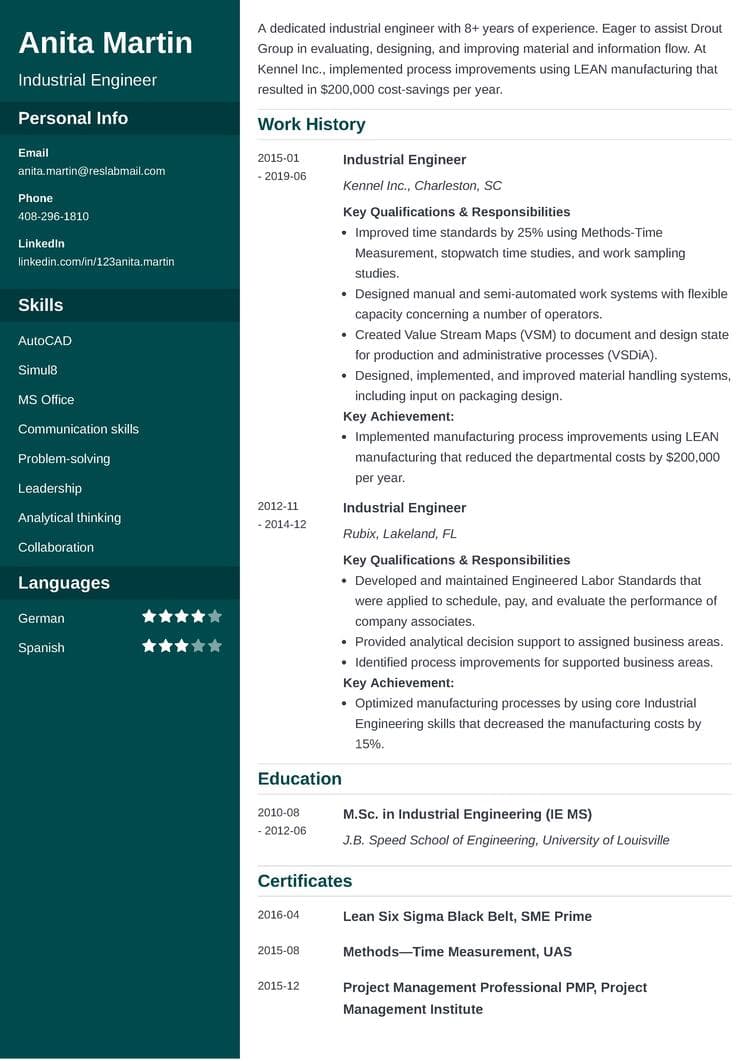Industrial Engineer Job Description

Introduction to Industrial Engineering

Industrial engineering is a branch of engineering that deals with the optimization of complex systems, processes, and organizations. It involves the application of mathematical, physical, and social sciences to design, develop, and implement efficient and effective systems. Industrial engineers use their knowledge and skills to improve the productivity, quality, and safety of various industries, including manufacturing, healthcare, and service sectors.
Industrial Engineer Job Description

An industrial engineer is responsible for designing, developing, and implementing efficient systems and processes to improve the productivity and quality of an organization. Their primary goal is to eliminate waste, reduce costs, and enhance the overall performance of the organization. The job description of an industrial engineer may vary depending on the industry, company, and specific job requirements. However, some common responsibilities of an industrial engineer include: * Analyzing and evaluating existing systems and processes to identify areas for improvement * Designing and developing new systems, processes, and procedures to improve efficiency and productivity * Implementing and monitoring new systems and processes to ensure they are working effectively * Collecting and analyzing data to identify trends and patterns * Developing and implementing quality control measures to ensure high standards of quality * Collaborating with other departments, such as production, maintenance, and quality control, to ensure smooth operations * Identifying and mitigating potential risks and hazards in the workplace * Developing and implementing safety protocols and procedures to ensure a safe working environment
Key Skills and Qualifications

To become a successful industrial engineer, one needs to possess certain skills and qualifications. Some of the key skills and qualifications include: * Bachelor’s degree in industrial engineering or a related field * Strong knowledge of mathematics, physics, and engineering principles * Excellent analytical and problem-solving skills * Good communication and interpersonal skills * Ability to work effectively in a team environment * Strong organizational and time management skills * Proficiency in computer-aided design (CAD) software and other engineering tools * Certification as a professional engineer (PE) or certified industrial engineer (CIE)
Industrial Engineer Salary and Job Outlook

The salary and job outlook for industrial engineers vary depending on factors such as location, industry, experience, and education level. According to the Bureau of Labor Statistics (BLS), the median annual salary for industrial engineers was $88,020 in May 2020. The BLS also predicts that employment of industrial engineers will grow 10% from 2020 to 2030, which is faster than the average for all occupations.
Industrial Engineer Work Environment

Industrial engineers work in a variety of industries, including manufacturing, healthcare, and service sectors. They may work in offices, factories, or other settings, depending on the specific job requirements. Some common work environments for industrial engineers include: * Manufacturing plants * Hospitals and healthcare facilities * Consulting firms * Government agencies * Universities and research institutions
Challenges Facing Industrial Engineers

Industrial engineers face several challenges in their daily work, including: * Staying up-to-date with new technologies and trends * Managing complex systems and processes * Dealing with limited resources and budgets * Collaborating with other departments and stakeholders * Balancing productivity and quality with safety and environmental concerns
💡 Note: Industrial engineers must be able to adapt to changing circumstances and priorities, and be able to communicate effectively with other stakeholders.
Industrial Engineer Career Path

The career path for industrial engineers may vary depending on individual goals and interests. However, some common career paths for industrial engineers include: * Entry-level positions, such as industrial engineer or quality control engineer * Senior-level positions, such as senior industrial engineer or engineering manager * Specialized positions, such as supply chain manager or operations research analyst * Executive-level positions, such as director of engineering or chief operating officer
| Job Title | Median Salary | Job Description |
|---|---|---|
| Industrial Engineer | $88,020 | Designs and develops efficient systems and processes |
| Senior Industrial Engineer | $110,000 | Leads teams and manages complex projects |
| Engineering Manager | $140,000 | Oversees engineering teams and develops strategic plans |

In summary, industrial engineers play a critical role in designing, developing, and implementing efficient systems and processes to improve the productivity and quality of organizations. They must possess strong analytical and problem-solving skills, as well as excellent communication and interpersonal skills. With a strong job outlook and competitive salaries, industrial engineering can be a rewarding and challenging career path for those interested in this field.
What is the primary goal of an industrial engineer?

+
The primary goal of an industrial engineer is to design, develop, and implement efficient systems and processes to improve the productivity and quality of an organization.
What skills and qualifications are required to become a successful industrial engineer?

+
To become a successful industrial engineer, one needs to possess a bachelor’s degree in industrial engineering or a related field, strong knowledge of mathematics and engineering principles, excellent analytical and problem-solving skills, and good communication and interpersonal skills.
What is the job outlook for industrial engineers?

+
The job outlook for industrial engineers is positive, with employment predicted to grow 10% from 2020 to 2030, according to the Bureau of Labor Statistics.



